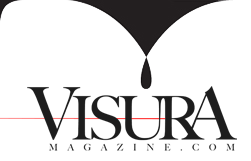Until the day we found out my father was going to jail, I lived an average life on Long Island, New York. Since all we could do was go on living a normal life, I continued to go to school, apply to college, hang with friends, spend time with my mother and brothers, and somehow try to do the same old activities. When someone is in prison it feels more like a death and then a resurrection.
Quietly, we all wondered what life would be like once my father returned from prison. We knew that the five of us would be different people when the fifty-one months were over.
During my fathers’ absence my mother amazed me. She took on the role of a mother and father. She had three jobs and took care of her three children. Meanwhile, she remained loyal to my father, and almost every weekend, she drove eight hours to visit him at Allenwood Prison Camp. During those months, she kept the family together and although now divorced, she continues to do so.
Taylor, my youngest brother, was too young to fully realize and comprehend the transition when my father went to jail. At first he believed the visiting room at Allenwood was my father’s new work place. Later when he began to understand the environment, he was quiet and accepting; he never made any accusations against our father. In our family, Taylor is the one that made sure we were all happy.
My younger brother Grant watched over me during the time of my father’s incarceration. Although he was a couple of years younger than me, I always thought he was wiser, and till this day, there is no one I admire more than him. He is not in this series because he was never comfortable being photographed, and every photo in the series was approved by all the members of my family.
I have always loved photography; it consumes most of my free time. I was 15, when I received the news, and I experienced these fifty-one months behind my camera. The images that you see where all taken during that period.
My dad worked long hours, so he was not home much before he went to prison. We were not very close. When he returned from prison, I had graduated college from the School of Visual Arts in New York, and supported myself through the four years. I became a photo editor at Newsweek one year after his release. I was not a teenager anymore, therefore we had to get to know each other all over again. This is still difficult sometimes.
There is no explanation as to why I photographed this series. I had no choice. There was no decision. At that time, making photographs is what I knew, and the way that I was able to cope. Looking at these photographs ten years later, I realize each image is an invitation to revisit this vulnerable time.
In the end, I created a diary of absence. Many of these images propel the viewer into a moment or an event, and help to complete my story; the images that have stuck with me are those of detail. These images are what filled the void my father left behind and represent the passing time and our sense of loss. The details are our daily emotions, everyday surroundings; they are my personal experience. Alongside these brief details exist memories of prison visiting rooms, and my father, lifeless and scared.
These details along with my love for my family are my story.
www.carrielevy.com






